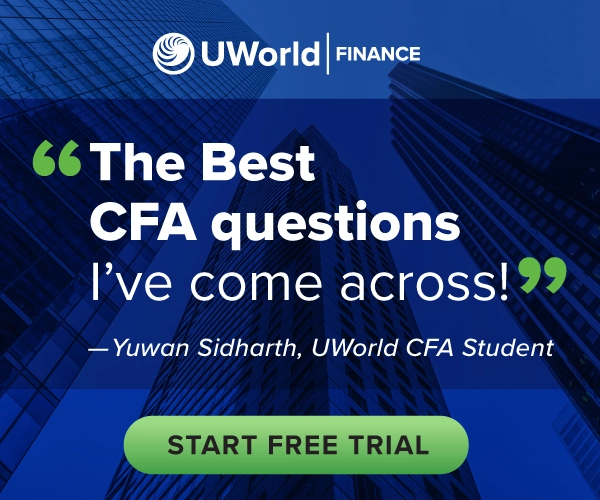In CFA® exam prep, what you remember matters as much as what you understand. That’s where flashcards come in—especially for formulas, definitions, and tricky Ethics principles.
But should you build your own deck, buy pre-made cards, or use a digital flashcard system?
This article breaks down how CFA candidates can use flashcards effectively—and why UWorld’s ReadyDecks are one of the fastest ways to lock in what matters.
Why Flashcards Work for CFA Prep
Flashcards activate active recall, which forces your brain to retrieve information. This strengthens memory more than passive reading or rewatching videos.
They’re especially useful for:
- Formulas like NPV, TVM, DDM, duration
- Definitions (market efficiency, arbitrage, beta)
- Ethics standards and scenarios
- Quick concept checks in short study windows
“Using flashcards daily helped me retain formulas and key concepts effectively.” — Reddit user
Physical vs Digital Flashcards: What’s Better?
| Feature | Handwritten Cards | UWorld ReadyDecks |
|---|---|---|
| Portability | Study anywhere | |
| Spaced Repetition | Manual | Automated scheduling |
| Time to Create | High | None — ready to go |
| Customization | Yes | Add custom cards easily |
| Analytics | Track mastery over time |
Unless you enjoy crafting cards by hand, digital flashcards offer more flexibility and retention benefits.
What Makes UWorld’s ReadyDecks Stand Out?
UWorld’s ReadyDecks are built by CFA experts and fully integrated into your study dashboard. Here’s how they help:
- Pre-made by topic: Quant, FRA, Ethics, and more
- Spaced repetition ensures you see cards right before you forget
- Mobile-friendly — study during commutes, breaks, or downtime
- Tag and favorite cards for rapid review
- Custom card builder for making your own tricky-topic cards
“I didn’t have time to build 300 flashcards myself. UWorld’s ReadyDecks saved me hours—and helped me pass.” — Reddit CFA Forum
Flashcard Strategy for CFA Level 1 Success
Use flashcards to reinforce what you learn, not replace full lessons. Here's how:
Flashcard Routine
- Daily: 10–15 minutes, even on rest days
- Post-practice: Add missed concepts to your custom deck
- Final weeks: Focus on high-yield topics (formulas + Ethics)
Flashcard Types to Prioritize
- Key formulas (TVM, DDM, bond valuation)
- LOS definitions
- Ethics scenarios (“What would a charterholder do?”)
- Mnemonics (e.g., “FIRE” for capital budgeting)
Final Thoughts: Flashcards Don’t Just Help—They Multiply Your Study ROI
If you’re trying to pass CFA Level 1, flashcards are one of the most efficient retention tools you can use.
Whether you build your own or use a platform like UWorld, the key is consistency—and smart structure.
Don’t memorize blindly. Let UWorld’s ReadyDecks help you retain what actually matters.





